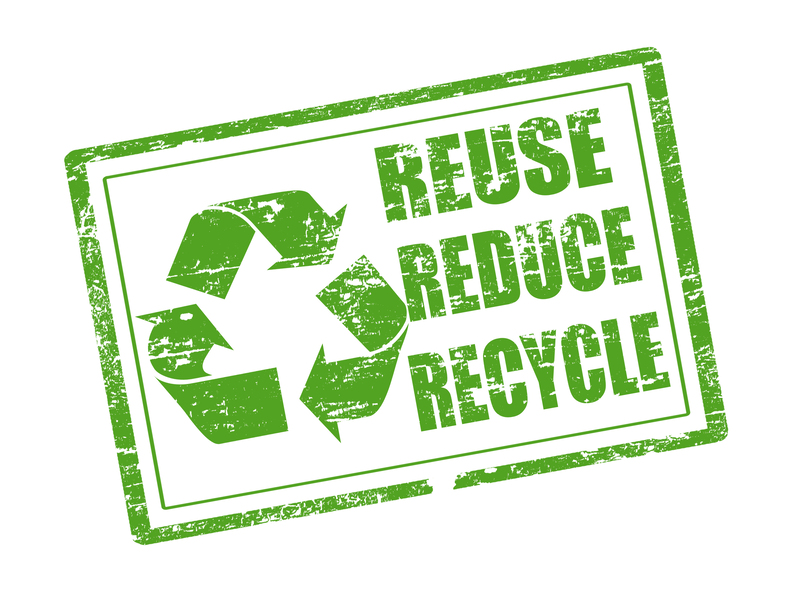Clean Up Responsibly: The Right Disposal of PPE Waste
The widespread use of personal protective equipment (PPE), such as masks, gloves, gowns, and face shields, has never been more crucial than in recent years, especially during public health crises like the COVID-19 pandemic. However, as the use of PPE has increased, so has the volume of PPE waste. Responsible disposal of PPE waste is now a global environmental and public health priority. In this comprehensive article, we'll explore the significance of proper PPE disposal, how to manage PPE waste, best practices for individuals and organizations, and innovative solutions for a cleaner, safer planet.
Understanding PPE Waste and its Growing Challenge
Personal protective equipment waste refers to the discarded items--such as single-use face masks, disposable gloves, protective suits, and shoe covers--that have been used to protect individuals from biological, chemical, or physical hazards. The vast majority of PPE is made from synthetic plastics like polypropylene, latex, and vinyl, all of which pose significant challenges for disposal and recycling.
Why is PPE Waste a Problem?
- Environmental Impact: Most PPE is not biodegradable and can persist in the environment for decades.
- Health Risks: Improperly discarded masks and gloves can harbor pathogens, exposing sanitation workers and the public to diseases.
- Wildlife Threat: Animals may mistake PPE for food or become entangled, leading to injury or death.
- Waste Management Strain: The spike in PPE usage overwhelms municipal waste systems, leading to improper disposal.

The Importance of Proper PPE Disposal
The correct disposal of PPE waste is critical for breaking the chain of infection and reducing damage to our ecosystems. It also supports effective waste management and keeps our communities clean.
Key Reasons to Dispose PPE Responsibly:
- Prevents the Spread of Disease: Discarded PPE can be contaminated. Safe disposal reduces the risk of spreading bacteria and viruses.
- Protects Workers and the Public: Proper handling shields garbage collectors, janitors, and anyone who comes into contact with waste.
- Protects the Environment: Keeping PPE out of oceans, rivers, and forests prevents plastic pollution and protects wildlife.
- Legal Compliance: Many jurisdictions have regulations for medical and hazardous waste; improper disposal can attract penalties.
Different Types of PPE Waste and Their Disposal Methods
Not all PPE is created equal, nor should it all be disposed of in the same way. Understanding which type of PPE waste you're handling is the first step toward responsible PPE waste management.
1. Disposable Face Masks
- Material: Non-biodegradable plastics like polypropylene
- Disposal: Should be disposed in general waste bins--never in recyclables. Fold the mask, tie the ear loops, and place it in a sealed bag if contaminated.
2. Disposable Gloves
- Material: Latex, vinyl, or nitrile
- Disposal: Place in general waste. Do not flush or dispose in recycling bins.
3. Goggles, Face Shields, and Gowns
- Material: Often plastic or mixed materials
- Disposal: For single-use items, follow local guidelines. Some hospitals collect and incinerate infectious waste; otherwise, dispose in appropriate waste streams.
4. Reusable PPE
- Material: Cloth or durable plastic
- Disposal: Cloth masks can be washed and reused; if worn out, dispose as general waste. Some plastic items may be recyclable--check local recycling rules.
5. Medical Facility PPE Waste
- Classification: Often considered regulated medical waste
- Disposal: Segregate into red biohazard bags; treated via incineration or autoclaving in compliance with health regulations.
Best Practices for the Responsible Disposal of PPE Waste
Adopting smart PPE disposal protocols will reduce contamination, environmental impact, and support overall sustainability. Here's how individuals and organizations can make a difference:
For Individuals
- Carry a bag: Store used PPE in a small, sealable bag until you can dispose of it safely.
- Never litter: Discard PPE in designated waste bins only.
- Don't recycle disposable PPE: Masks and gloves cannot be recycled in typical household recycling systems due to contamination and material type.
- Wash hands: Always wash or sanitize your hands after handling used PPE.
- Used cloth masks: Wash frequently in hot water and dry thoroughly before reuse.
For Businesses and Public Institutions
- Provide visible, labeled bins: For PPE disposal, especially in public areas.
- Train staff: Ensure cleaning crews understand safe handling of infectious waste.
- Seal and segregate: Use color-coded bags for infectious versus non-infectious waste.
- Follow regulations: Adhere to local guidelines for medical waste management.
- Partner with waste contractors: Ensure compliant collection, transportation, and disposal.
Innovative Approaches to PPE Waste Management
PPE waste disposal is an evolving challenge that has inspired creative solutions worldwide. These methods aim for sustainability, safety, and efficiency.
1. Special PPE Recycling Programs
- Some companies now collect and process single-use masks and gloves, turning them into construction materials like road surfaces or insulation.
- Special bins in high-traffic locations (like malls and airports) keep PPE out of landfills.
2. Biodegradable PPE
- Researchers have developed masks and gloves from plant fibers, chitosan, and other biodegradable materials that break down faster than plastics.
3. Waste-to-Energy Initiatives
- PPE waste can be incinerated in high-efficiency plants, converting waste into usable energy while minimizing toxins and emissions.
4. Decentralized Decontamination
- Hospitals and large institutions adopt on-site decontamination (via autoclaves or chemical treatments) before sending PPE waste to landfills or incinerators.
Global Perspectives: How Different Regions Manage PPE Waste
Disposal of PPE varies by country and depends on available resources, local regulations, and waste management infrastructure.
United States
- The CDC and EPA recommend that households dispose of used PPE as municipal solid waste. Healthcare facilities must use regulated medical waste systems.
- Some cities have initiated special mask recycling pilot programs.
Europe
- The EU has issued guidelines stressing segregation of infectious waste in healthcare settings, encouraging innovation in recycling, and promoting public education campaigns.
Asia
- Countries like Japan and Singapore have adopted high-efficiency incineration and issued clear public disposal instructions during pandemics.
Africa
- In regions with limited formal waste management, NGOs and government agencies distribute educational materials and collection bags to minimize littering and open burning.
The Consequences of Improper PPE Disposal
Careless discarding of PPE can have serious implications for global health and the environment. Here's what can go wrong:
- Environmental Pollution: Discarded masks and gloves clog waterways, break down into microplastics, and harm marine life.
- Blocked Drainage Systems: PPE waste can block drains, leading to urban flooding and sanitation issues.
- Disease Transmission: Viruses and bacteria live on plastic PPE for days, risking outbreaks among waste workers and the public.
- Landfill Burden: PPE's plastic content adds to already overflowing landfills, which are costly to manage and harmful to communities.
How to Encourage Responsible PPE Waste Disposal
Creating sustainable change takes effort from every level of society. Here's how we can all promote cleaner, safer PPE waste handling:
1. Public Awareness Campaigns
- Governments and health organizations should promote messages on the dangers of littering PPE and instruct on proper disposal.
2. Industrial and Business Responsibility
- Businesses must provide clear signage, dedicated disposal points, and regular maintenance to keep public areas clean.
3. Product Redesign and Sustainability
- PPE manufacturers should explore eco-friendly materials and designs that facilitate responsible disposal and recycling.
4. Citizen Action
- Individuals must take personal responsibility, educate others, and advocate for accessible waste solutions in their communities.

Frequently Asked Questions about PPE Waste Disposal
Can I recycle used face masks or gloves?
No. Most disposable face masks and gloves are made from materials that are not recyclable via household recycling streams, especially if contaminated. Always dispose of these in the general waste bin unless a dedicated recycling scheme is available in your area.
What should I do with cloth masks that are worn out?
Cloth masks that are no longer usable should be thrown in the regular trash. If possible, remove any metal strips or filters and place those in the waste as well.
How can I reduce my PPE waste?
- Use reusable masks and face shields when appropriate, following public health guidelines.
- Use hand hygiene in place of gloves unless required for specific tasks.
- Educate yourself and others on responsible PPE use and disposal.
Conclusion: Cleaning Up Responsibly for a Healthier Future
Today, cleaning up PPE waste responsibly isn't optional--it's an imperative. By adhering to local waste disposal regulations, practicing safe handling, and supporting innovative waste management solutions, we can safeguard our environment, protect our communities, and ensure that the benefit of personal protection does not come at the cost of our planet. Let's work together to make responsible PPE waste disposal a universal practice and build a cleaner, safer, and more sustainable future for everyone.
Together, simple steps--like using the right bin, opting for reusable PPE where possible, and spreading awareness--can make all the difference. Start today, and inspire those around you to clean up responsibly!